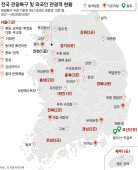Black consumers shift target to prey on smaller firms
Black consumers shift target to prey on smaller firms
Posted March. 04, 2014 07:49,
They are effectively no different from robbers, and the only difference is that they dont carry a knife. Who would be able to counter when they shout and threaten without reservation?
A 50-something woman started shouting the moment when she entered a store run by a small apparels maker last month. She put down a shopping back on the checkout counter in the store as if dumping it, saying, You are surely a small company considering that you are selling such shoddy clothing. The shopping bag contained a winter jacket that had pieces of lint on it here and there. It was a product from three years ago, which is no longer put on display for sale now. Even though the store manager said return and refund can be arranged only within 10 days after purchase, she insisted on getting refund. She threatened that I will upload Internet posts, saying that your customer service is substandard, because it is such a small company. The company had no choice but to give her refund for the jacket.
"Black consumers" who make malign consumer complaints to acquire financial gains from companies are chasing after small- and medium-sized firms en masse. With black consumers emerging as a social problem, conglomerates are countering them by analyzing malign consumer complaints, training their staff, and deploying personnel exclusively for handling black consumers. As a result, those damaging consumers are flocking to smaller firms that have little capacity to cope with such consumer complaints.
The customer compliant counseling center at Happy Department Store, a store exclusively for products from smaller companies in Mok-dong in Seouls Yangcheon district, is struggling to deal with malicious consumer complaints that number two to three cases weekly these days. Such complaints numbered one to two cases per month up until last year, but they have surged in number lately. We have received mounting consumer complaints demanding unconditional refund for products whose warranty expired and products that show apparent signs of use (by the buyer), or products that external consumer organizations concluded that they are not defective, said a source at the department store. They seem to be harsher on us, because smaller firms have no manuals to deal with them, other than friendly response."
Due to their low brand awareness, smaller firms can be dealt with a serious blow even by an Internet post or a short comment uploaded on social service network pages. With the scale of their business smaller than conglomerates, they are all the more vulnerable because they cannot afford to deploy staff exclusively for dealing with black consumers, with most of them depending on word-of-mouth marketing.
Even if a company legally clears itself of accusations by spending months in order to address a couple of malicious consumer complaints, the company ends up getting its brand image tarnished during the period, said Lee Joo-hoon, director at the Green Consumer Network. Black consumers have figured out that smaller companies relatively lack capacity to cope with malign consumer complaints than conglomerates, and seek to resolve conflicts without making noise, rather than actively coping with such complaints.
Majority of smaller companies in Korea have yet to find countermeasures to efficiently cope with malicious complaints filed by black consumers. In a survey of 203 small- and medium-sized firms that experienced unjust demands by black consumers conducted last year by the Korea Chamber of Commerce and Industry, 83.7 percent of the respondents replied, We simply accept malign consumer complaints. The figure is more than five times higher than that (14.3 percent) of those who replied We proactively cope with them through legal measures. Majority of the respondents said the reason they simply accept malicious complaints despite mounting damage is due to deterioration of corporate image (90 percent).
Experts say that smaller companies urgently need to develop database on black consumers who habitually make complaints, and devise measures to jointly cope with them. Recently black consumers are using increasingly clever methods, by organizing themselves through online communities, staging systematic activities, and sharing methods to rip off, said Lee Seung-shin, professor of consumer information at Konkuk University. Smaller companies need to share each other information on black consumers habitually filing complaints, and prepare ways to cope with them according to the type of behaviors.
Headline News
- N. Korea redefines S. Korea as ‘hostile state’ in revised constitution
- Samsung develops graphic DRAM with industry-leading capacity and speed
- Three questions allegedly leaked via text message during Yonsei Univ. essay test
- China to inject 340 trillion won in loans to support real estate sector
- Dodgers beat Mets to take 2-1 lead in NLCS







